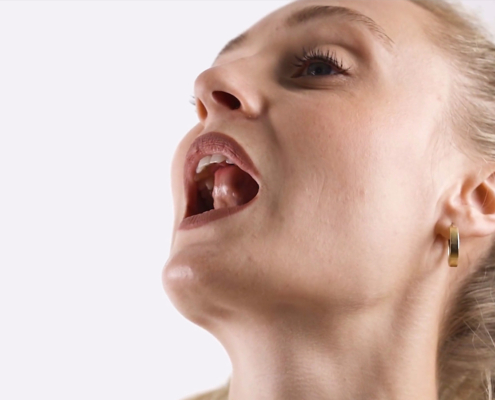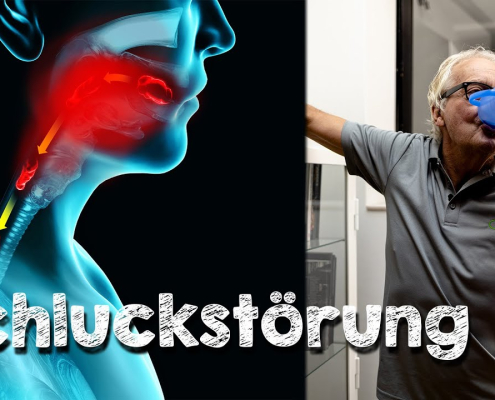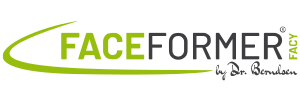
The vagus nerve – interface between brain and body
The vagus nerve: the key to relaxation and health? Learn how this important nerve controls our autonomic nervous system and what role it plays in stress and relaxation. Find out more about the connection between breathing, heart rate and our well-being.

Swallowing – more than just a reflex – mechanics and meaning of an ordinary movement
More than 50 finely coordinated muscles ensure that we can swallow - a marvel of body mechanics! But what if this harmony is disturbed? Learn more about the health effects and discover how to fix them.

Trinklernbecher, Schnabeltassen und Co – Warum Trinkhilfen das Trinken behindern und eine gesunde Entwicklung in Mund und Rachen stören!
Trinklernbecher und Schnabeltassen erscheinen praktisch, doch sie blockieren die natürliche Zungenbewegung und stören den normalen Schluckvorgang. Langfristig können diese Hilfsmittel Probleme wie Zahnfehlstellungen, Mittelohrentzündungen oder Atemprobleme hervorrufen. Hier erfahren Sie, warum der Verzicht auf solche Trinkhilfen eine gesunde Entwicklung fördert und welche Alternativen es gibt.

What is the correct tongue rest position?
A prerequisite for correct, biological tongue tension and tongue movement is coordinated inner and outer tongue musculature. It goes hand in hand with complicated, precise movement patterns such as chewing, swallowing and speaking. Incorrect tensions can only be corrected through exercise therapies that take such patterns into account. To do this, exercises must not stray too far from the specific range of motion of the patterns. With the FaceFormer training, this is taken into account for the first time.

Schluckstörung oder Dysphagie – Oft unerkannt und dennoch folgenreich – Was hilft?
Schluckstörungen, auch Dysphagie genannt, bleiben oft lange unbemerkt. Sie können jedoch zu ernsthaften gesundheitlichen Problemen führen. Falsche Schluckmuster, die häufig bereits in der Kindheit entwickelt werden, können langfristig Beschwerden wie Mittelohrentzündungen, Atemprobleme und sogar Nacken- oder Rückenschmerzen verursachen. In diesem Beitrag erfahren Sie, wie Sie Schluckstörungen frühzeitig erkennen und welche Therapieansätze effektiv helfen, die korrekten Bewegungsabläufe wiederherzustellen.
